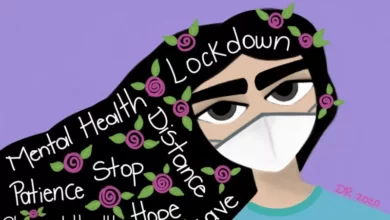The Rise of Personalized Career Pathways and Career-Focused Education

In today’s rapidly evolving job market, individuals are seeking more personalized career pathways and a greater focus on career-oriented education. Traditional educational models have often been criticized for not adequately preparing students for the workforce, leading to a demand for more tailored approaches. This article explores the rise of personalized career pathways and the significance of career-focused education in shaping the future of learning.
Introduction
As the nature of work undergoes significant changes, the traditional linear career path is being replaced by a more dynamic and personalized approach. Personalized career pathways offer individuals the flexibility to design their own educational and professional journeys based on their interests, skills, and aspirations. This article delves into the concept of personalized career pathways, discusses their benefits, explores the role of career-focused education, highlights successful programs, and examines the challenges and considerations associated with implementing such pathways.
What are Personalized Career Pathways?
Personalized career pathways are customizable educational routes that align with an individual’s career goals and aspirations. Unlike traditional education, where students follow a predetermined curriculum, personalized career pathways allow learners to create a unique learning experience tailored to their interests, aptitudes, and desired career outcomes. These pathways integrate academic instruction with real-world experiences, enabling individuals to acquire the skills and knowledge necessary to excel in their chosen fields.
Benefits of Personalized Career Pathways
Enhanced Relevance: By tailoring their educational journey to their specific career interests, individuals can gain a deeper understanding of their chosen field and its practical applications. This relevance enhances their motivation, engagement, and overall learning outcomes.
Flexibility and Agility: Personalized career pathways empower learners to adapt to the rapidly changing job market. They can easily pivot and acquire new skills or knowledge as needed, ensuring their professional growth and employability in an ever-evolving landscape.
Empowerment and Ownership: Individuals take ownership of their learning and career choices, promoting a sense of empowerment and self-efficacy. They actively shape their education, gaining confidence and developing essential skills like critical thinking, problem-solving, and decision-making.
Industry Connections: Personalized career pathways often foster partnerships with industry professionals and organizations. This collaboration facilitates mentorship opportunities, internships, and real-world projects, enabling learners to build valuable connections and gain practical experience.
The Importance of Career-Focused Education
Career-focused education refers to an educational approach that prioritizes the acquisition of skills and knowledge relevant to specific careers or industries. This approach acknowledges the need for students to be prepared for the workforce upon graduation, bridging the gap between education and employment. By integrating career-focused education into the curriculum, educational institutions can equip learners with the practical skills and competencies required for their chosen professions.
How Personalized Career Pathways are Shaping Education
Personalized career pathways are revolutionizing education by challenging the one-size-fits-all model. Traditional education often neglects individual strengths, passions, and interests, leading to disengagement and a lack of relevance. Personalized career pathways address these shortcomings by providing tailored learning experiences that align with the unique needs and aspirations of each learner.
These pathways incorporate a variety of educational approaches, such as project-based learning, internships, apprenticeships, and mentorship programs. By integrating classroom instruction with real-world experiences, students gain practical skills, industry knowledge, and a better understanding of the career pathways they wish to pursue. This holistic approach to education not only enhances academic achievement but also fosters the development of critical soft skills, such as communication, teamwork, and problem-solving.
Examples of Successful Personalized Career Pathways Programs
Across the globe, numerous personalized career pathways programs have demonstrated remarkable success in preparing students for future careers. One notable example is the “Pathways in Technology Early College High School” (P-TECH) model, which partners with industry leaders to provide students with a clear pathway from high school to college and careers in the technology sector. This program offers a blend of academic and technical coursework, mentorship, and workplace experiences, enabling students to graduate with both a high school diploma and an associate degree in a technology-related field.
Another successful program is the “Career Academies” model, which integrates academic and technical coursework within a career-themed framework. These academies focus on industries such as healthcare, engineering, or business, providing students with hands-on experiences, industry certifications, and opportunities for internships and apprenticeships. By immersing students in real-world settings, Career Academies foster a seamless transition from education to employment.
Challenges and Considerations
While personalized career pathways hold tremendous potential, there are challenges that need to be addressed to ensure their effective implementation. Some of these challenges include:
Equity and Accessibility: It is crucial to ensure that personalized career pathways are accessible to all students, regardless of their socioeconomic background, race, or gender. Efforts must be made to eliminate barriers and provide equitable opportunities for all learners.
Curriculum Design and Accreditation: Designing a flexible curriculum that meets both academic standards and industry requirements can be a complex task. Balancing core knowledge with specialized skills is essential to ensure graduates are well-rounded and competitive in the job market.
Teacher Professional Development: Educators play a vital role in implementing personalized career pathways. Providing professional development opportunities for teachers to adapt their instructional methods and integrate real-world experiences into the curriculum is crucial.
Collaboration with Industry Partners: Building strong partnerships with industry leaders and local businesses is essential to provide students with authentic learning experiences, mentorship, and opportunities for internships and job placements. However, establishing and maintaining these partnerships can pose challenges.
Implementing Personalized Career Pathways in Schools
The successful implementation of personalized career pathways requires a collaborative effort from various stakeholders, including educational institutions, policymakers, industry professionals, and the community. Key strategies for effective implementation include:
Needs Assessment: Conducting a comprehensive needs assessment to identify the specific career opportunities and industries in the local area can guide the development of personalized career pathways that align with the demands of the job market.
Partnerships and Collaborations: Establishing partnerships with local businesses, industry organizations, and higher education institutions can provide students with authentic learning experiences, mentorship, and internship opportunities.
Flexible Curriculum Design: Developing a flexible curriculum that combines academic coursework with practical experiences, such as internships and apprenticeships, ensures that students gain the necessary skills and knowledge for their chosen career paths.
Individualized Support: Providing individualized support and guidance to students, including career counseling, mentorship, and academic advising, can help them navigate their personalized career pathways effectively and make informed decisions about their educational and career choices.
Professional Development for Educators: Offering professional development opportunities for educators is crucial to equip them with the necessary skills and knowledge to implement personalized career pathways effectively. This can include training on industry trends, project-based learning, and integrating real-world experiences into the curriculum.
The Role of Technology in Personalized Career Pathways
Technology plays a vital role in supporting personalized career pathways by providing access to resources, facilitating collaboration, and enabling personalized learning experiences. Online platforms, virtual simulations, and educational apps offer students the opportunity to explore different career options, acquire new skills, and connect with industry professionals. Technology also assists educators in tracking student progress, providing personalized feedback, and tailoring instructional strategies to meet individual needs.
Addressing Equity and Accessibility
To ensure that personalized career pathways are truly inclusive, it is essential to address issues of equity and accessibility. Efforts should be made to eliminate barriers that prevent certain groups of students from accessing these pathways. This includes providing financial support for students from disadvantaged backgrounds, offering transportation options, and ensuring that resources and opportunities are distributed equitably across all schools and communities.
Additionally, it is crucial to foster a culture of inclusivity and diversity within personalized career pathways programs. This can be achieved by actively promoting equal representation, providing mentorship and support for underrepresented groups, and addressing unconscious biases in the educational system.
The Future of Personalized Career Pathways and Education
The rise of personalized career pathways and career-focused education signals a significant shift in the way we approach learning and career preparation. As technology continues to advance and the job market evolves, the demand for tailored educational experiences will only increase. The future of personalized career pathways lies in continued collaboration between educational institutions, industry partners, and policymakers to develop innovative programs that meet the changing needs of learners and the workforce.
By embracing personalized career pathways, we can foster a generation of individuals who are not only academically competent but also equipped with the practical skills, adaptability, and passion to thrive in their chosen careers. This shift in education has the potential to create a more engaged, skilled, and workforce-ready population.



